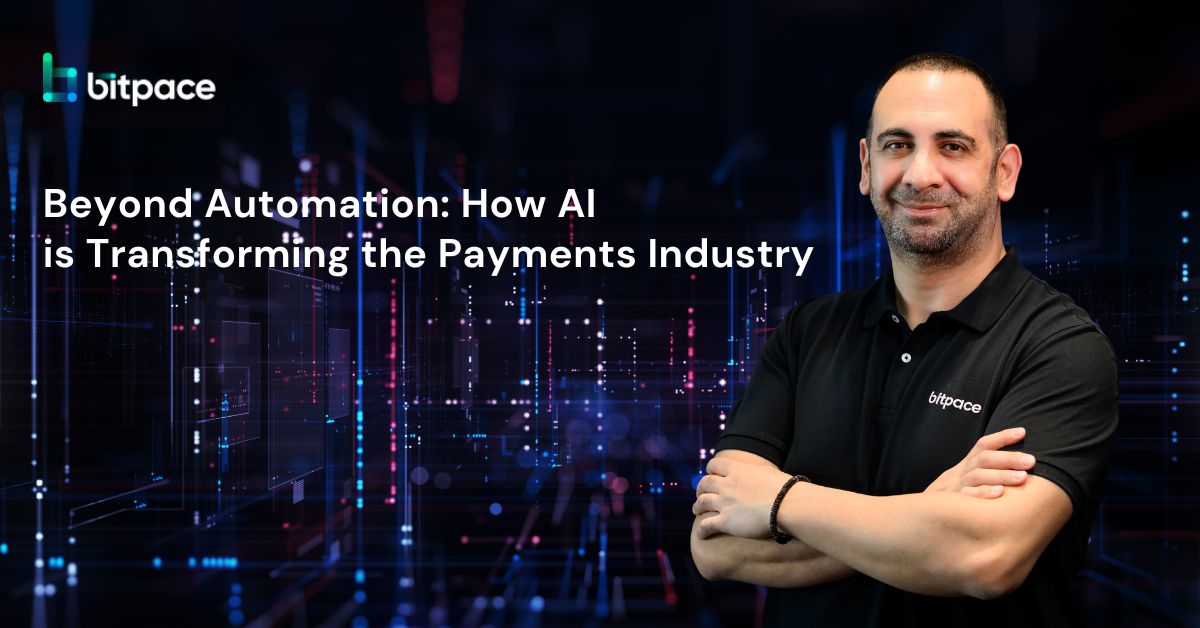The financial ecosystem is entering a transformative era, powered by AI. At a recent session at Seamless Dubai 2025, Bitpace CEO Anil Oncu shared insights with Moah CEO, Andreas Tsindos, about how AI is reshaping payments, making processes faster, smarter, and more accessible.
The need for AI and automation
When discussing the need for AI and how it can be used to create efficiencies within the business, the conversation focused on collecting and sorting customer data and personalisation for customers.
“You need to know each customer one by one. You need to analyse things by yourself,” Anil explains.
Anil explained that when working for a global company, it is not an easy task to truly understand each customer’s needs. This is why automation and AI assistance are key for growing businesses and providing the best possible services to customers.
“When the outcome is complex, it makes the decision-making very hard, too.”
AI in payments
AI can be daunting. With unlimited use cases, where does a company start when implementing AI into workflows?
Anil explained how AI is revolutionising routine payment tasks such as transaction monitoring, compliance, and customer support.
At Bitpace, AI has been implemented across departments, allowing teams to work more efficiently, reduce routine workload, and focus on higher-impact tasks.
“Today’s AI is perfect for routine tasks. We started with AI in transaction monitoring, customer support, and now it’s making our work a lot smoother and more efficient.”
Challenges and opportunities in AI adoption
When it comes to the challenges and opportunities for the adoption of AI across the business, Anil acknowledged that transitioning to AI-enabled platforms can be challenging, especially for long-established businesses.
“We have a young team passionate about using new technology, making adoption seamless. It’s about understanding AI implementation and making it work for your business.”
Bitpace has introduced an AI strategy that includes stakeholders across departments to ensure alignment with legal and regulatory requirements.
“We meet every month to review ideas and make sure AI supports both efficiency and compliance.”
AI and the workforce
With AI, the future workforce will be forced to evolve and adapt. Anil noted that the goal is not necessarily to reduce staff, but to work smarter, harnessing AI to find more efficient ways of working.
Anil comments: “We will continue to hire people, but AI allows us to be more efficient, focusing on quality over quantity. We can reduce future hiring needs by leveraging AI effectively.”
AI regulations and cybersecurity
Regulations and cybersecurity are essential for any business, and using AI has the potential to jeopardise compliance and security.
Anil emphasised the importance of understanding regulations like GDPR when implementing AI: “Today, technology allows us to process data securely without sharing it unnecessarily with third parties. Regulations are still evolving, and we expect more clarity soon.”
On cybersecurity, Anil reassured that AI can be implemented securely.
“With role-based access and well-established protocols, AI can be an ally for safeguarding data and ensuring privacy.”
The road ahead
The road ahead for AI is a long one. While it is not perfect yet, the future is bright.
Anil is optimistic about AI’s role in shaping the future of payments: “Modern tools, combined with platforms like MCP, are making it increasingly easy for businesses to adopt AI. In five years, we expect AI to transform customer support, making routine interactions seamless and allowing human agents to focus on more complex, nuanced cases.”
Final thoughts
AI isn’t about replacing human teams. It’s about enhancing their capabilities, making businesses more agile and customer-centric.
“It’s making things better, one step at a time,” Anil explains.

